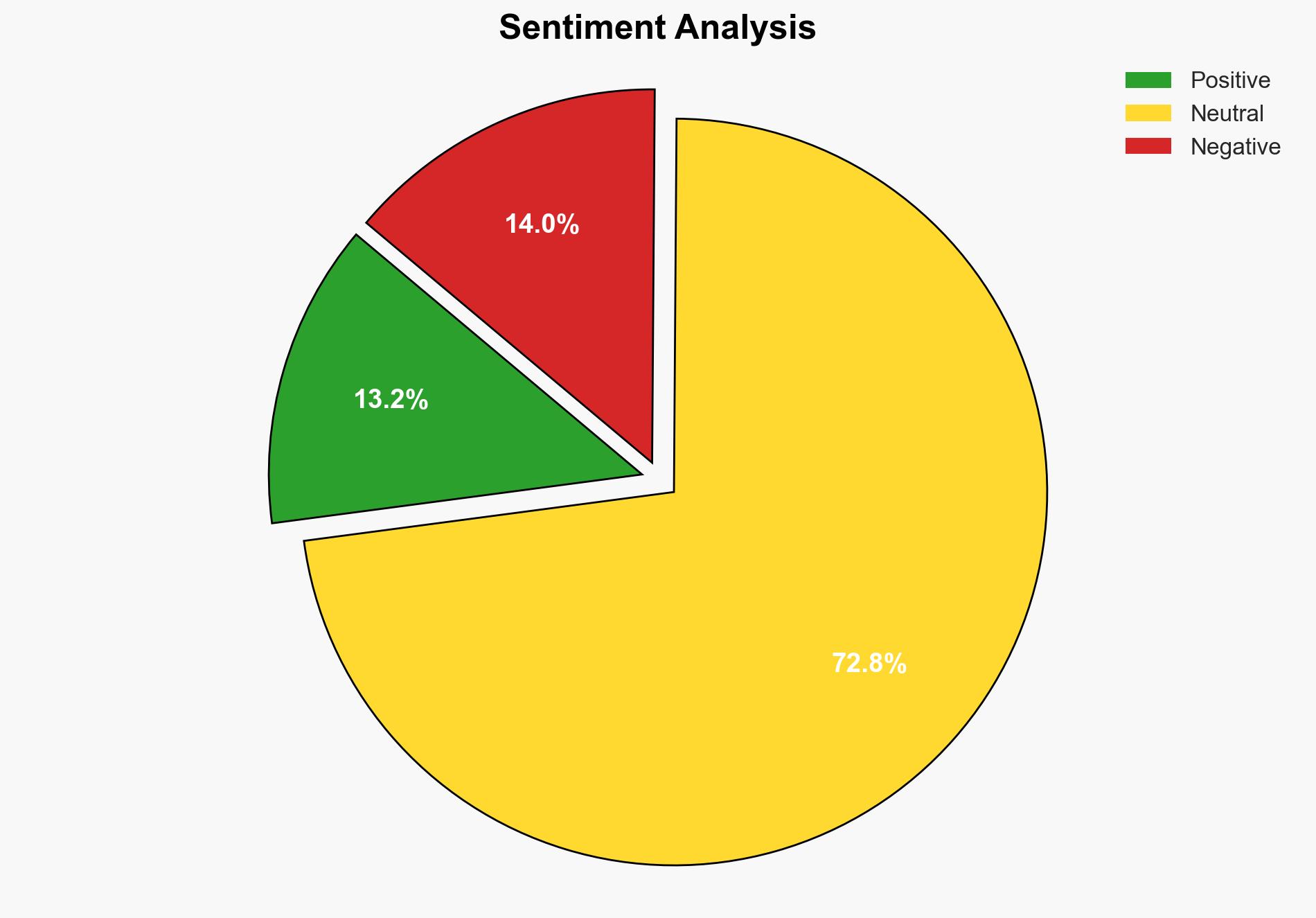Judge calls DOJ’s deportation flight submission ‘woefully insufficient’ – ABC News
Published on: 2025-03-20
Intelligence Report: Judge calls DOJ’s deportation flight submission ‘woefully insufficient’ – ABC News
1. BLUF (Bottom Line Up Front)
A federal judge, James Boasberg, has criticized the Department of Justice for failing to comply with a court order regarding deportation flights. The judge labeled the DOJ’s submission as “woefully insufficient” and demanded further action. The situation involves the deportation of alleged gang members, with national security concerns cited as a reason for non-compliance. This judicial-executive tension highlights potential risks to the rule of law and governmental processes.
2. Detailed Analysis
The following structured analytic techniques have been applied for this analysis:
General Analysis
The dispute centers around the deportation of alleged gang members from Venezuela and El Salvador. James Boasberg’s order challenges the DOJ’s handling of deportation flights, emphasizing a failure to meet legal obligations. The DOJ’s invocation of national security concerns, specifically the state secret privilege, complicates compliance. This situation underscores a broader conflict between judicial oversight and executive authority, particularly concerning immigration enforcement and national security.
3. Implications and Strategic Risks
The ongoing legal and administrative conflict poses several risks:
- National Security: The invocation of state secret privilege suggests sensitive information is at stake, potentially impacting foreign relations and national security.
- Judicial-Executive Relations: The tension between judicial orders and executive actions may lead to a constitutional crisis, affecting the balance of power.
- Immigration Policy: The case could set precedents for future immigration enforcement and the handling of deportation cases.
4. Recommendations and Outlook
Recommendations:
- Enhance inter-agency communication to ensure compliance with judicial orders while safeguarding national security interests.
- Consider revising protocols for invoking state secret privilege to balance transparency and security.
- Develop a framework for resolving conflicts between judicial and executive branches to prevent future disputes.
Outlook:
Best-case scenario: The DOJ complies with the court order, resolving the conflict without compromising national security.
Worst-case scenario: Continued non-compliance leads to a constitutional crisis, impacting the rule of law and governmental stability.
Most likely outcome: Negotiations between the DOJ and the judiciary result in a compromise, maintaining both legal compliance and national security.
5. Key Individuals and Entities
The report mentions significant individuals and organizations:
- James Boasberg
- Karen Traver
- Karoline Leavitt
- John Roberts





